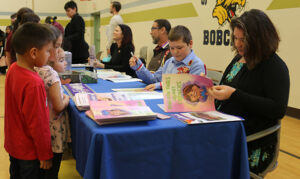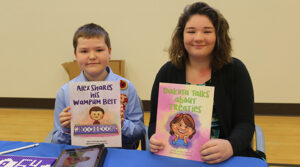Ipperwash Summer Series: Treaty education in curriculum: Ipperwash
September 6, 2020, will mark the 25th anniversary of the shooting death of unarmed protestor Anthony “Dudley” George by an Ontario Provincial Police sniper at Ipperwash Beach. The Anishinabek News will feature an Ipperwash Summer Series to highlight the history, trauma, aftermath, and key recommendations from the 2007 Report of the Ipperwash Inquiry. First Nations in Ontario understood that the Inquiry would not provide all of the answers or solutions, but would be a step forward in building a respectful government-to-government relationship.
For information on the 2007 Report of the Ipperwash Inquiry, please visit: http://www.attorneygeneral.jus.gov.on.ca/inquiries/ipperwash/closing_submissions/index.html

By Kelly Crawford
Everyone is both a teacher and a student. I have done treaty sessions with four-year-old children and with 60-year-old adults. There is no age limit when it comes to learning about your connection to the land.
The challenging part of treaty education is that the continuum of learning is vast. I have walked into many rooms over the years to deliver sessions and you never really know what you are walking into. You need to be able to assess where the participants are at in the room. I call this ‘finding the heartbeat’. Once you understand that, you know what gaps you should fill first. With the history of education in the country, there are unfortunately many educational gaps that need filling in treaty education, curriculum and in the classroom.
On May 31, 2007, the Report of Ipperwash Inquiry was released, and recommendation #30 states, “The Ministry of Education should establish formal working relationships with Aboriginal organizations to promote more Aboriginal perspectives and content in the elementary and secondary school curricula.”
It has been just over 13 years since this recommendation was made. How far have we come?
It took 20 years for updated First Nations, Métis and Inuit studies curriculum to be released, 13 years since the release of recommendations. It went through a series of slowdowns due to changing governments. The elementary curriculum revisions were cancelled. When the revised secondary curriculum was released for High Schools in September 2019, Premier Doug Ford’s government pledged $3.25 million to make this happen. Part of making this happen would include professional development dollars. Professional development dollars to support the rollout; however, due to job action followed by the coronavirus disease 2019 (COVID-19), rather than roll-over the money into the next school like many other grants, the Ministry of Education decided not to. Particularly in an era where school boards have recently come under scrutiny for various accounts of racism, there is an enormous need to provide adequate professional development and training to ensure that educators are properly equipped and supported when delivering curriculum related to Indigenous education. Otherwise, we will continue to see harmful classroom practices that perpetuate stereotypes and colonial ideology.

Relationships are key. On the Ministry of Education website, it reads: “The Ministry of Education is committed to working with Indigenous and education partners to continue improving Indigenous student achievement and well-being in Ontario and increasing all students’ knowledge and understanding of First Nation, Métis, and Inuit histories, cultures, contributions and perspectives.” I think a lot of great work is being done by many people to make this a reality. Relationships and partnerships are key and it is great to see this happening in Ontario.
We need to be very realistic of the situation. The story of Dudley George is a story every person in Ontario needs to learn. This story can facilitate authentic learning about the realities in the relationship to land and to each other.
“In order to understand racism, we need to first understand colonialism. Racism is a byproduct of colonialism. Colonialism has caused a violent displacement of Indigenous people off our lands and with that, a slow, methodical legislated genocide. Learning about Ipperwash allows for an entry point into a much bigger and much-needed conversation about the relationship between Indigenous and non-Indigenous people. In order to move forward, we need to understand these past events because colonialism is still very much at play today,” says Jodie Williams, Co-chair of the First Nations, Métis and Inuit Education Association.
Treaty education in the classroom allows for important conversations to take place regardless of the grade. Making the LEGO wampum belt of the 1764 Treaty of Niagara Belt opens a dialogue about friendship and sharing with five-year-old children. Examining the Ipperwash Inquiry allows for critical conversations for High School students. These conversations need to happen at every educational level to understand the full story, connection to the land that we live on and people we share it with.
“It is very important to realize that us as Indigenous people belong to the land. Our ancestors are buried there. All our songs, language, and ceremonies are rooted in this land. We will always be connected to our homelands and will never leave who we are. Ipperwash is a sad violent reminder that sometimes society has a hard time accepting this. We will always be here, and that’s a good thing. We have so much to offer this world,” says Isaac Murdoch, one of the founders of the Onaman Collective.
Ipperwash in the classroom needs to be properly supported. It is difficult for educators to learn and deliver simultaneously as many have not been exposed to the information before. It is a hard thing to take when you realize your understanding of your own country was a falsehood.
Dr. Niigaan Sinclair says, “The story of Ipperwash is the story of Canada’s invasion and dispossession of Indigenous territories.”
We have made progress but we are far from the finish line. We collectively need to understand the capacity in education and support not only content but process and delivery. We will know we are there when there is an actual authentic understanding and respect for the land and each other.
Kelly Crawford is a citizen of M’Chigeeng First Nation. She holds a Master of Arts-Integrated Studies Degree with a concentration in culture and education from Athabasca University, and currently a PhD candidate in the Human Studies program at Laurentian University. She is the author of the ‘We Are All Treaty People’ teacher’s kit, Kindergarten to Grade 8; ‘Gdoo-Sastamoo Kii Mi, Understanding our Nation-to-Nation Relationship: A Practical Teachers Resource Guide’; Dakota Talks About Treaties; and Alex Shares His Wampum Belt. Crawford is currently the Assistant Director of Indigenous Initiatives with the University of Toronto.
Teachers kits and books available to order through orders@anishinabek.ca. Books also available to order through www.goodminds.com

